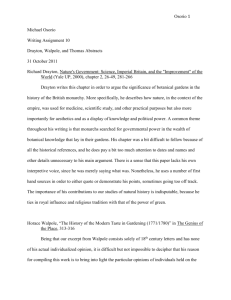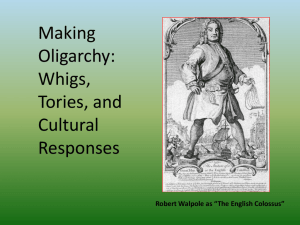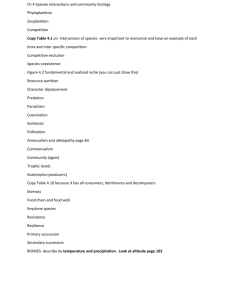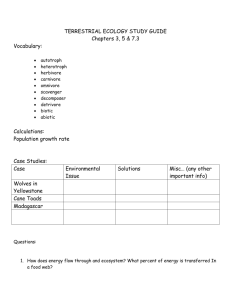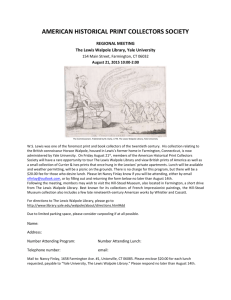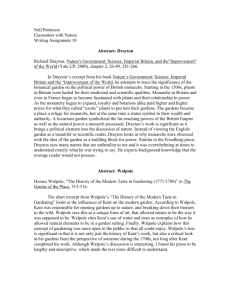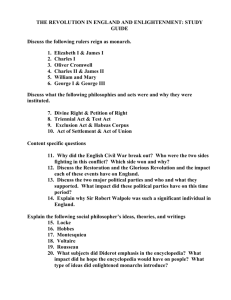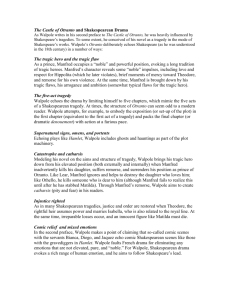Ch. 7, Sec. 33 and 34 SGQ
advertisement
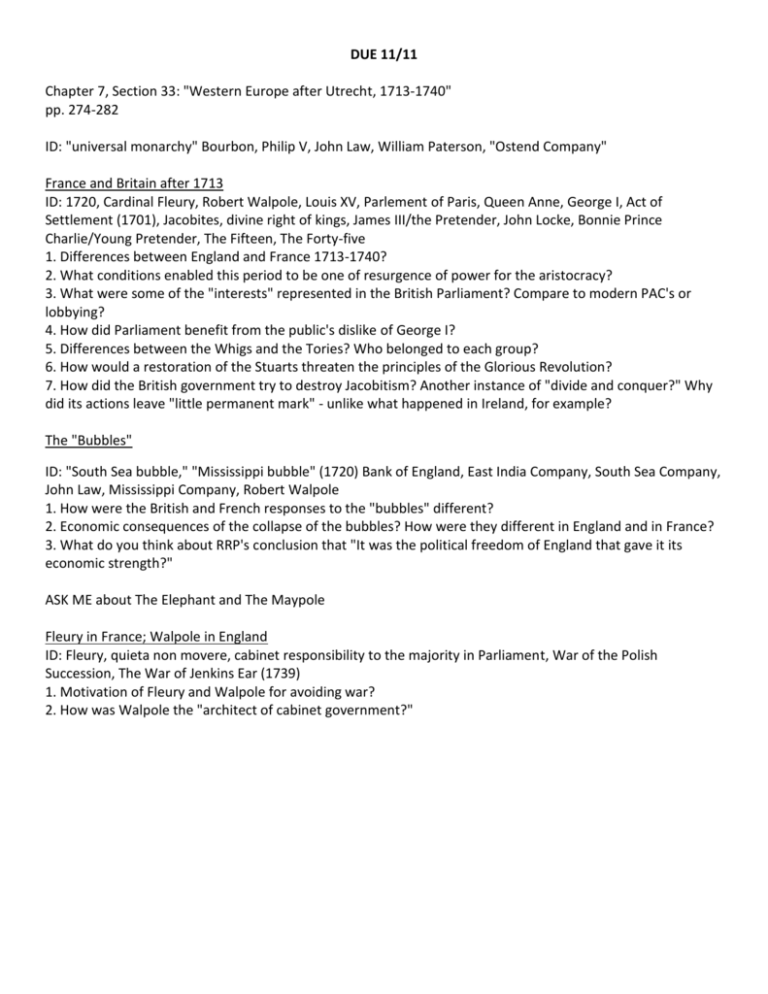
DUE 11/11 Chapter 7, Section 33: "Western Europe after Utrecht, 1713-1740" pp. 274-282 ID: "universal monarchy" Bourbon, Philip V, John Law, William Paterson, "Ostend Company" France and Britain after 1713 ID: 1720, Cardinal Fleury, Robert Walpole, Louis XV, Parlement of Paris, Queen Anne, George I, Act of Settlement (1701), Jacobites, divine right of kings, James III/the Pretender, John Locke, Bonnie Prince Charlie/Young Pretender, The Fifteen, The Forty-five 1. Differences between England and France 1713-1740? 2. What conditions enabled this period to be one of resurgence of power for the aristocracy? 3. What were some of the "interests" represented in the British Parliament? Compare to modern PAC's or lobbying? 4. How did Parliament benefit from the public's dislike of George I? 5. Differences between the Whigs and the Tories? Who belonged to each group? 6. How would a restoration of the Stuarts threaten the principles of the Glorious Revolution? 7. How did the British government try to destroy Jacobitism? Another instance of "divide and conquer?" Why did its actions leave "little permanent mark" - unlike what happened in Ireland, for example? The "Bubbles" ID: "South Sea bubble," "Mississippi bubble" (1720) Bank of England, East India Company, South Sea Company, John Law, Mississippi Company, Robert Walpole 1. How were the British and French responses to the "bubbles" different? 2. Economic consequences of the collapse of the bubbles? How were they different in England and in France? 3. What do you think about RRP's conclusion that "It was the political freedom of England that gave it its economic strength?" ASK ME about The Elephant and The Maypole Fleury in France; Walpole in England ID: Fleury, quieta non movere, cabinet responsibility to the majority in Parliament, War of the Polish Succession, The War of Jenkins Ear (1739) 1. Motivation of Fleury and Walpole for avoiding war? 2. How was Walpole the "architect of cabinet government?" Chapter 7, Section 34: "The Great War of the Mid-Eighteenth Century: The Peace of Paris, 1763" pp. 282-296 ID: "Silesian" wars, War of the Pragmatic Sanction, King George's War, "French and Indian War", War of the Austrian Succession (1740-1748), Seven Years War (1756-1763) 1. Who is fighting whom and over what issues? Do you agree with RRP that "The two wars were really one?" Eighteenth-Century Warfare 1. Characterize 18th C. warfare and explain how it affected the development of events. Consider feelings of nationalism, loyalty of recruits, weapons, strategy, involvement of civilians, role of ideology/public opinion, peace treaties? The War of the Austrian Succession, 1740-1748 ID: Frederick II "The Great", Pragmatic Sanction, "reason of state," location of Silesia, Cardinal Fleury, status quo ante bellum, "reversal of alliances," Diplomatic Revolution of 1756, Count Kaunitz 1. What did each combatant want to gain in this war? 2. Similarities of War of Austrian Succession to Thirty Years War? Issues? Combatants? 3. Goals of French policy? 4. What conditions cause the willingness of the French to negotiate? 4. Terms of the Peace of Aix-la-Chapelle? 5. Political and military conditions obtaining in each of the powers as a result of the war? 6. Consequences to Austria and Prussia of transfer of Silesia? 7. Kaunitz's diplomacy: goals? means? successes? The Seven Years War, 1756-1763: In Europe and America ID: "war of partition" (anything like this going on now?), William Pitt the Elder/Earl of Chatham 1. Wherein was Frederick II a great leader? 2. Colonial possessions of the contending powers? * 3. Mercantilist regulations and their application in the colonies? 4. Preconditions, precipitants and triggers of the 7 Years War? 5. What do you think about the quotation from William Pitt? Can any one person be that important? The Seven Years War, 1756-1763: In India ID: Moguls, Akbar, Delhi, Aurungzeb, Hyderabad, Golconda, Dupleix, sepoys, Robert Clive, Black Hole of Calcutta, Suraja Dowra, Battle of Plassey 1. Similarities of Indian politics to those of the HRE? 2. Evidence that the British and French intentions in India were not imperialistic? 3. What were Dupleix's goals and how did he implement them? 4. Clive's goals and implementation thereof? 5. What would you say was the decisive factor in British dominance over France in India? The Peace Settlement of 1763 ID: Peace of Hubertusberg 1. Terms of the Peace between Britain and France? 2. Why didn't Britain take Guadeloupe and Martinique? 3. Limits on French action in India? 4. In what ways was the Peace of 1763 a "turning point?"

